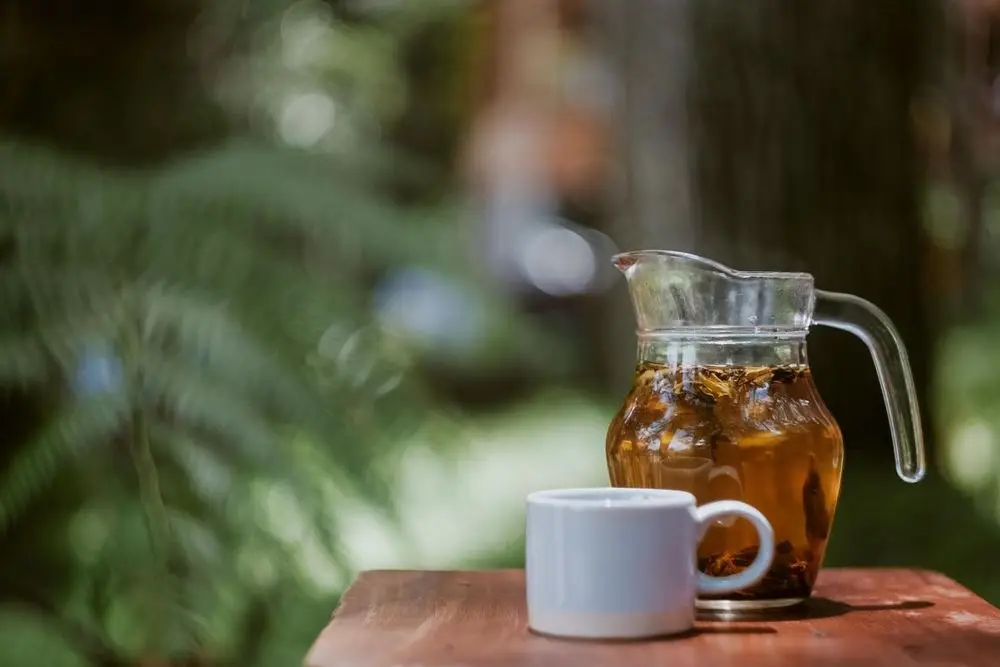Summer brings those long-awaited months of cool drinks on the porch, picnics, and lazy afternoons. But, as temperatures climb, so does the risk of dehydration. That means it’s even more important to remember some hydration tips.
Hydration isn’t just about drinking enough water. Fluids can be gained from many sources, and not getting enough can lead to serious health complications.
Older adults are at particular risk for dehydration. A UK study of older adults in residential care found that 46 percent had impending or current dehydration, as diagnosed by blood tests.
So, how you can help the older adults in your family with these tips for staying hydrated this summer?
[cts header=”We’ve Got You Covered” paragraph=”Senior LIFE can provide the help you need during hot summer months.” button=”Find out more.”]
Hydration Tips: Why Older Adults Are at Risk
As we age, our body’s ability to conserve water is reduced, leading to fluid and electrolyte imbalances. As a result, it becomes harder to adapt to fluctuating temperatures.
In addition, our sense of thirst diminishes as we age. That means by the time we feel thirsty, we could already be critically low on essential fluids that are important to our body. That makes knowing how to stay hydrated extra important.
Besides the natural result of aging, certain medications and medical conditions can also impact our ability to retain fluids. Diuretics, laxatives, antihistamines, and corticosteroids can trigger a frequent need to urinate. This rapidly depletes our fluid levels.
Medical authorities recommend that older adults consume at least 1.7 liters of fluid every 24 hours. This equals 57.5 fluid ounces, or 7.1 cups. That means they need to know how to get hydrated.
Some older adults who battle incontinence will purposely avoid fluids because of possible accidents. This increases the risk of dehydration.
Hydration Tips: The Signs of Severe Dehydration
When attempting to detect symptoms of dehydration in elderly adults, remember that thirst is not an early indicator. Look for some subtle, early signs like headache, dry mouth, muscle cramps, constipation, or sleepiness.
When signs of severe dehydration occur, it’s important to know how to rehydrate quickly. Other signs of dehydration include:
- Little or no urination
- Dark or amber-colored urine
- Dry skin that stays folded when pinched
- Irritability, dizziness, or confusion
- Low blood pressure
- Rapid breathing and heartbeat
- Weak pulse
- Cold hands and feet
Hydration Tips for Older Adults
Some older adults may need help or encouragement with how to stay hydrated, and that takes more than just handing them a large glass of water. Use these handy tips for staying hydrated to make getting the fluids they need easy.
Vary the Beverages
If an older adult doesn’t care for plain water, try using some flavor enhancers or pre-flavored waters. Other tips for drinking more water can include mixing juice or fresh fruit with the water.
Water isn’t the only way to stay hydrated. Warm chicken, beef, or vegetable broth can provide a savory source of fluids and electrolytes. And, they make a great, “light” meal during hot summer months.
Have fun staying hydrated! For those who can have sweets, try popsicles, fruit smoothies, and milkshakes to add some fluid intake. Another way to make things fun is to decorate a fancy glass with a pretty garnish.
Add some fresh fruit and a tiny umbrella. Nothing says hydration tips have to be boring.
Vary Beverage Containers
Consider aesthetics and utility when encouraging an older adult to drink more. A senior with vision problems might be able to see an opaque, brightly colored cup more easily and therefore drink from it more often.
Utility can be an issue, such as with an older adult who has tremors, arthritis, or difficulty swallowing. In those cases, using cups with two handles, a no-spill lid, a built-in straw, or ergonomic features may simplify the process and prevent spills.
Increase the Frequency of Beverage Offerings
Offer beverages more often than just mealtimes. Also, try offering smaller quantities of fluid more often. This can be much more appealing than a large drink a few times a day.
Perhaps keeping a beverage schedule would help. Offer a small glass of something cool, nourishing, and fun, but easily consumed. An hour or so later, offer another interesting option.
Take Advantage of Water-filled Foods
For tasty hydration tips, try snacking on foods with a high water content. Following are some suggestions for how to stay hydrated with foods high in moisture content.
- Cucumber 96 percent
- Tomato 94 percent
- Watermelon 92 percent
- Bell pepper 92 percent
- Grapes 92 percent
- Cantaloupe 90 percent
- Orange 97 percent
- Blueberries 85 percent
- Apples 84 percent
As summer months turn up the heat, fight back by using these handy tips for staying hydrated for yourself or the older person in your life. Get plenty of fluids and have plenty of fun!
Senior LIFE provides medically necessary support services that are designed to keep you at home longer. If you have questions about how Senior LIFE can help with summer health issues, contact your local Senior LIFE Center.

